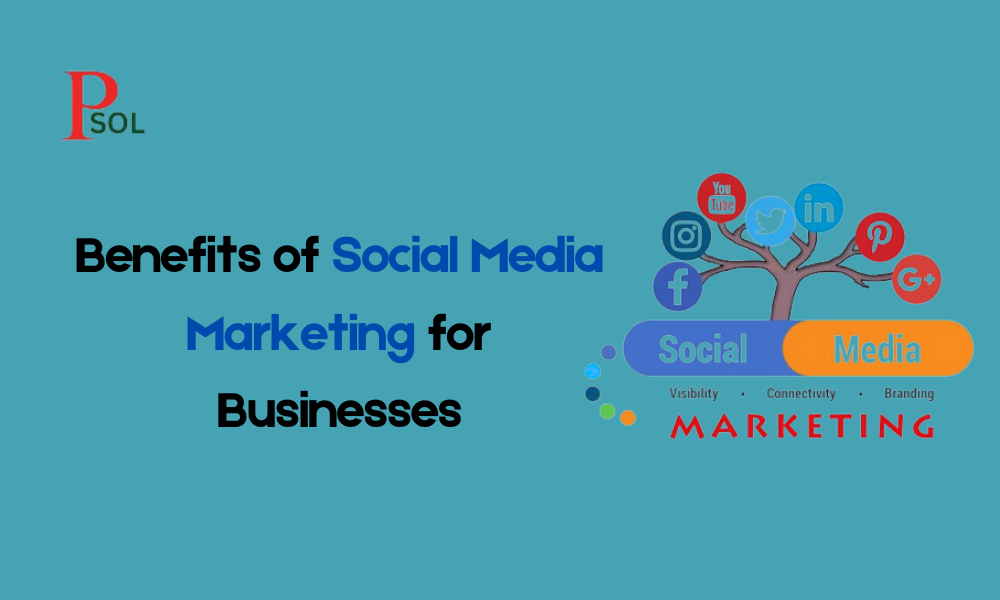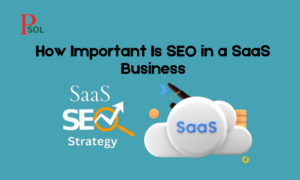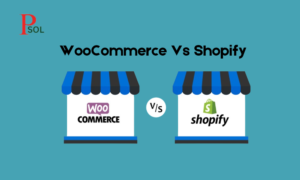Social media platforms have become more than just ways for socializing; they’ve grown into powerful tools for businesses to connect with their audience, build brand awareness, and drive sales. Social media marketing has emerged as a cornerstone of modern business strategies, offering a myriad of benefits that can propel companies to new heights of success. Let’s delve into the profound advantages that social media marketing offers for businesses of all sizes.
1. Enhanced Business / Brand Visibility and Recognition
Social media platforms boast billions of active users worldwide, providing an unparalleled opportunity for businesses to amplify their brand presence. By establishing a robust social media presence, companies can showcase their products or services to a vast audience, increasing brand visibility and recognition.
2. Targeted Advertising and Audience Engagement
One of the most significant advantages of social media marketing is its ability to precisely target specific demographics based on various factors such as age, location, interests, and behavior. Through advanced targeting options offered by platforms like Facebook, Instagram, and LinkedIn, businesses can tailor their advertising campaigns to reach the most relevant audience segments, maximizing the effectiveness of their marketing efforts. Moreover, social media facilitates direct communication with customers, allowing businesses to engage in meaningful conversations, address inquiries, and receive feedback in real-time, fostering stronger relationships and customer loyalty.
3. Cost-Effective Marketing Solutions
Traditional marketing channels often come with hefty price tags, making them inaccessible to many small and medium-sized businesses. In contrast, social media marketing offers cost-effective solutions that deliver impressive results without breaking the bank. With options such as pay-per-click advertising, sponsored content, and influencer partnerships, businesses can achieve significant reach and engagement at a fraction of the cost of traditional advertising methods. This affordability enables companies with limited marketing budgets to compete on a level playing field with larger enterprises, democratizing the marketing landscape.
4. Data-Driven Insights and Analytics
Social media platforms provide businesses with access to a wealth of data and analytics tools that offer valuable insights into audience behavior, content performance, and campaign effectiveness. By analyzing metrics such as engagement rates, click-through rates, and conversion rates, businesses can gain a deeper understanding of their target audience’s preferences and interests, allowing them to refine their marketing strategies for optimal results. Data-driven decision-making empowers businesses to allocate resources more efficiently, optimize their content for better performance, and continuously improve their overall marketing efforts.
5. Increased Website Traffic and Conversions
Effective social media marketing can drive significant traffic to a business’s website, leading to increased brand exposure and higher conversion rates. By strategically incorporating links to their website in social media posts, businesses can direct users to relevant landing pages, product pages, or blog posts, encouraging them to take desired actions such as making a purchase or signing up for a newsletter. Additionally, social media platforms offer features such as shoppable posts and integrated buy buttons, streamlining the path to purchase and facilitating seamless transactions directly within the social media environment.
6. Competitive Advantage and Industry Influence
Staying ahead of the curve is crucial for sustained success. Social media marketing provides businesses with a platform to showcase their expertise, share industry insights, and establish thought leadership within their respective fields. By consistently delivering valuable content that educates, inspires, and entertains their audience, businesses can position themselves as authoritative voices in their industry, earning trust and credibility among customers and peers alike. This, in turn, can lead to increased brand loyalty, referrals, and partnerships, further solidifying the business’s position as a market leader.
5 Top Social Media Platforms To Use For Social Media Marketing
When it comes to social media marketing, choosing the right platforms to showcase your brand and engage with your audience is crucial. With numerous platforms available, each offering its own unique features and audience demographics, it’s essential to identify the ones that best align with your marketing objectives. Here are five top social media platforms widely used for social media marketing:
1. Facebook
Audience Targeting:
With over 2.8 billion monthly active users, Facebook remains the largest social media platform globally, catering to a diverse audience spanning all age groups.
Facebook Marketing Features:
Facebook offers a range of features for businesses, including Pages for brand presence, Groups for community engagement, and targeted advertising options for precise audience targeting.
Benefits:
Facebook’s extensive user base and robust advertising capabilities make it ideal for businesses looking to reach a broad audience, build brand awareness, drive website traffic, and generate leads.
2. Instagram
Audience Targeting:
Instagram boasts over 1 billion monthly active users, primarily consisting of younger demographics, including millennials and Gen Z.
Features:
Known for its visually engaging content, Instagram offers various formats such as photos, videos, stories, reels, and IGTV. It also provides business profiles with access to analytics and advertising tools.
Benefits:
Instagram is ideal for businesses that rely heavily on visual content to showcase products or services creatively. It’s particularly effective for lifestyle brands, e-commerce businesses, and companies targeting younger audiences.
3. Twitter
Audience Targeting:
Twitter has approximately 330 million monthly active users, known for its real-time conversations, news updates, and trending topics.
Features:
Twitter allows businesses to share short and concise messages (tweets), engage in conversations with followers, participate in trending topics using hashtags, and run targeted advertising campaigns.
Benefits:
Twitter is well-suited for businesses aiming to join conversations, share timely updates, provide customer support, and establish thought leadership within their industry.
4. LinkedIn
Audience:
LinkedIn is the leading professional networking platform, with over 700 million members worldwide, including professionals, businesses, and decision-makers.
Features:
LinkedIn offers features such as personal profiles, company pages, LinkedIn Groups, content publishing, and targeted advertising options tailored for B2B marketing.
Benefits:
LinkedIn is invaluable for businesses targeting professionals, B2B audiences, or seeking to establish authority in their industry. It’s ideal for networking, lead generation, recruiting, and sharing industry insights.
5. YouTube
Audience:
As the second-largest search engine after Google, YouTube boasts over 2 billion logged-in monthly users, with a vast audience spanning all demographics.
Features:
YouTube allows businesses to create and share video content, host channels, engage with subscribers through comments, and monetize content through advertising and sponsorship opportunities.
Benefits:
YouTube is indispensable for businesses leveraging video content to educate, entertain, and engage with their audience. It’s perfect for tutorials, product demonstrations, vlogs, brand storytelling, and expanding reach through video advertising.
20 Actionable Tips To Help Businesses On Social Media Platforms:
Define Social Media Marketing Your Goals:
Clearly outline what you aim to achieve on social media, whether it’s increasing brand awareness, driving website traffic, or generating leads.
Identify Your Targeting Audience:
Understand your target audience’s demographics, interests, and online behavior to tailor your content effectively.
Regular Branding Strategy:
Maintain a cohesive brand identity across all social media platforms, including profile pictures, cover photos, and bio descriptions.
Publishing Quality Content Is Key:
Create high-quality, engaging content that resonates with your audience and adds value to their lives.
Visual Appeal of Marketing Compaign:
Incorporate visually appealing elements such as images, videos, and infographics to grab attention and increase engagement.
Use Hashtags Wisely:
Research and use relevant hashtags to increase the discoverability of your content and reach a broader audience.
Always Engage with Your Audience:
Respond promptly to comments, messages, and mentions to foster meaningful interactions and build relationships with your followers.
Post Consistently on Social Media:
Maintain a consistent posting schedule to stay top-of-mind with your audience and keep them engaged.
Experiment with Different Formats:
Test many content formats, such as live videos, stories, polls, and quizzes, to see what resonates best with your audience.
Collaborate with Influencers:
Partner with influencers or industry experts to reach new audiences and gain credibility in your niche.
Run Contests and Giveaways:
Host contests, giveaways, or challenges to incentivize engagement and reward your loyal followers.
Optimize Your Social Media Profiles:
Optimize your social media profiles with relevant keywords, compelling descriptions, and clickable links to maximize visibility and conversions.
Monitor Social Media Traffic Analytics:
Regularly track your social media analytics to identify trends, measure performance, and refine your strategy accordingly.
Utilize Paid Advertising:
Invest in paid social media advertising to expand your reach, target specific audience segments, and drive conversions.
Cross-Promote Your Content:
Share your social media posts across different platforms to reach a wider audience and maximize exposure.
Join Relevant Business Groups and Communities:
Participate in industry-related groups and communities to network, share insights, and establish authority in your niche.
Stay Updated with New Marketing Trends:
Keep abreast of current trends, hashtags, and viral topics to capitalize on relevant opportunities and stay relevant in your industry.
Share User-Generated Content:
Encourage your followers to create and share content related to your brand, showcasing authentic experiences and testimonials.
Optimize Ads and Post for Mobile:
Ensure that your content is mobile-friendly and optimized for different devices to cater to the increasing number of mobile users.
Stay Authentic and Genuine:
Be authentic, transparent, and genuine in your interactions with your audience to build trust and credibility over time.
Conclusion:
The benefits of social media marketing for businesses are vast and multifaceted. From enhancing brand visibility and engagement to driving website traffic and conversions, social media offers a wealth of opportunities for businesses to grow and thrive in today’s digital landscape. By harnessing the power of social media platforms and implementing strategic marketing initiatives, businesses can unlock new levels of success, forge deeper connections with their audience, and achieve their long-term objectives.




